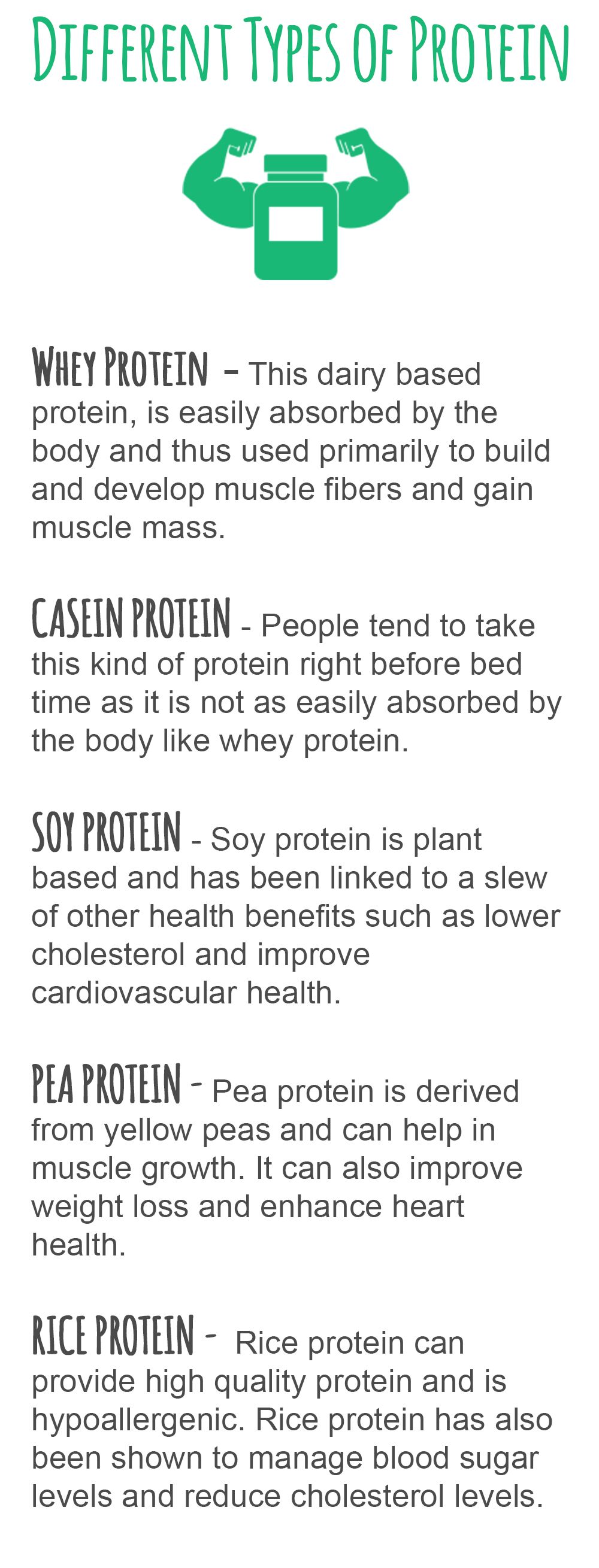
Protein supplements are probably one of the most popular supplements in the world. People use protein supplements for a variety of different reasons. They can range from building body mass, developing and growing muscles or to simply improve overall health. The health benefits of protein are undeniable. They help the body in a number of ways.
There is a lingering question though for people who want to take up protein supplements as a regular part of their diet and regimen and that is “When is the best time to take protein?”. This is actually a valid question since the type and timing of protein intake can greatly affect the effectivity and benefits of protein supplement.
Different Types of Protein
Before looking into the best time to take protein supplements, we first must look at the types of protein supplements. These different types of supplements have unique effects on the body and have specific health benefits. Listed below are the said protein supplements:
1. Whey Protein
This dairy based protein, is easily absorbed by the body and thus used primarily to build and develop muscle fibers and gain muscle mass.
2. Casein Protein
Another dairy based protein. People tend to take this kind of protein right before bed time as it is not as easily absorbed by the body like whey protein.
3. Soy Protein
Unlike whey and casein, soy protein is plant based and has been linked to a slew of other health benefits such as lower cholesterol and improve cardiovascular health.
4. Pea Protein
Pea protein is derived from yellow peas and can help in muscle growth. It can also improve weight loss and enhance heart health. Pea protein is naturally vegan so vegetarians and vegans looking for non meat alternatives to incorporate into their diet may consider making pea protein a regular supplement.
5. Rice Protein
Rice protein can provide high quality protein and is hypoallergenic which means this type of protein can easily be taken by potential users without worrying about the adverse effects of allergens and allergic reactions. Rice protein has also been shown to manage blood sugar levels and reduce cholesterol levels.
6. Hemp Protein
Hemp protein, aside from being highly nutritious, has been proven to reduce the risk of heart disease, ease various skin problems and disorders and even alleviate symptoms of premenstrual syndrome and menopause.
When is the best time to take the different kinds of proteins?
The question of “when is the best time to take protein?” really depends on your current health status and health goals. Below are some of the best and recommended times to take protein:
-
Protein intake to lose weight
Protein has been acknowledged as an important nutrient for weight loss. The boost in metabolism caused by protein consumption can actually help an individual feel more full or satiated and at the same time improve weight loss due to a more efficient metabolic “engine”. At the same time, protein can help reduce the appetite inducing hormone ghrelin which will reduce an individual’s urge to eat or snack on food items. This basically means to eating protein rich snacks in between major meals such as breakfast, lunch, and dinner may increase the feeling of being full or satiated leading the body to reduce the intake of more food items later in the day.
One example of this would be the comparison of consuming protein rich yogurt in between meals as compared to eating crackers or chocolates. It showed that people who had yogurt for their snack tended to feel satiated and less inclined to eat heavier meals and snack items late in the afternoon and right before dinner. This strategy of stimulating and encouraging the body to take less calories throughout the day simply translates to better weight loss.
-
Protein intake for muscle building
Protein is essential for the body to grow and develop muscles. In order for muscles to develop and grow faster, protein intake should be greater than what the body can naturally breakdown during an exercise routine or a heavy workout.
Bodybuilders recommend taking protein to optimize muscle building during the timeframe called the anabolic window which is fifteen (15) to sixty (60) minutes after a workout session. This anabolic window, according to fitness enthusiasts, will provide the maximum muscle building effect. Recent evidence suggests though, that the anabolic window can actually have a longer timeframe than previously thought.
There is reason to believe that taking protein supplements even two (2) hours after workout sessions can still promote efficient muscle building. Others who workout for muscle building also go on extended fasts to make protein absorption more effective after taking protein supplements within the said anabolic period as it is believed that protein fasts can actually promote and stimulate the body’s protein absorbing abilities.
-
Protein intake to prevent muscle loss
As our bodies grow older, retaining muscle is very important as they can help combat the risks of fractures and minimize the chances of a shorter lifespan. However, the sad fact is that people start losing around three (3) percent of their muscle mass each year once they hit thirty (30) years of age.
Experts recommend that intake of protein be spread out during meals to maximize the protein supplement effects against muscle loss. This means taking around 25 to 30 grams worth of protein per meal. It also recommended to take more protein during breakfast as it is easier to adjust and distribute the protein consumed throughout the day.
-
Protein intake for performance and recovery
Athletes are usually faced with the question of when to take protein supplements to help with performance and recovery. Experts agree that athletes aiming for performance and recovery should combine protein and carb intake and consume these nutrients during and after workouts and athletic activities to maximize and promote the body’s efficient performance and recovery. In one study, cyclists who took protein during training actually contributed to faster recovery from fatigue and minimized soreness.
